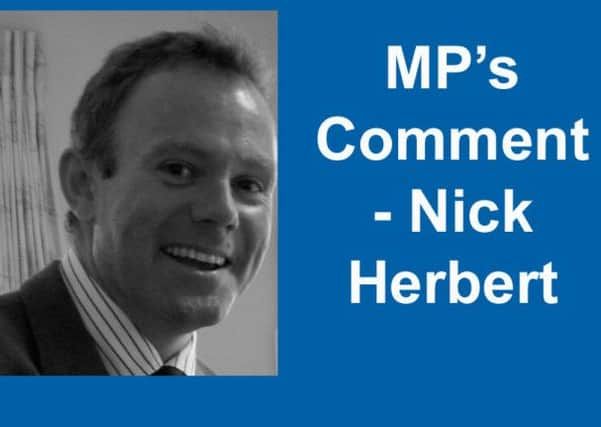Nick Herbert: misguided attack on welfare reforms


Of course churches and their leaders should speak for the poor. But I believe their recent interventions have been misguided.
There is nothing moral about consigning families to worklessness and dependency, nor of racking up ever more public debt that must be repaid by the next generation through higher levels of taxation.
Advertisement
Hide AdAdvertisement
Hide AdWelfare reforms will save money, and this is necessary when the budget is one of the largest in government. But they also have a moral purpose.
Those who cannot work or are unable to look after themselves should receive the support they need. But, for instance, housing benefit payments of up to £80,000 per year were clearly unjust to those who work. The deficit should not be balanced on the backs of the poorest. In fact, as I pointed out in a previous column, taxation changes have deliberately sought to protect the poorest while ensuring that the rich pay a higher share.
In fact, child poverty is now at its lowest level since the mid-1980s, and inequality is at its lowest since 1986. Cardinal Nichols, and the bishops - including the Bishop of Chichester - who signed a recent letter to the Daily Mirror, are particularly concerned by the rising use of food banks. Many attribute this to welfare reform.
I applaud the charitable help provided by food banks. But, as a report commissioned by the Government concluded recently, there is not enough evidence to make a direct link between welfare reform and food bank use. Actually, the increase in the use of food banks began over a decade ago, well before the financial crash.
Advertisement
Hide AdAdvertisement
Hide AdThe Bishops of Chichester and Horsham also recently urged West Sussex County Council not to make further cuts while maintaining reserves, suggesting that this was “unnecessary austerity”.
But if the Council did not make savings, it would have to increase council tax, which would hurt the low paid. And is it wise to criticise financial prudence?
This week the former Archbishop of Canterbury, George Carey, warned the churches against “the dangers of blindly defending a gargantuan welfare budget.”
He said that “the Church of England is at its best when it avoids party politics and instead works with all partners to tackle social and economic injustice.” I agree.
If you would like to get in touch with me, please write to me at the House of Commons, London, SW1A 0AA, or e-mail me at [email protected]